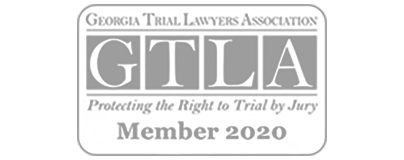Home | Glossary of Personal Injury Terms | Defendant
Defendant
In the context of legal proceedings, a defendant is an individual or entity being accused or sued in a court of law. In criminal cases,s the defendant is the individual facing allegations of wrongdoing, while in civil matters, such as personal injury lawsuits, the defendant is the party being sued for causing harm or injury.
Who Can Be a Defendant in Georgia Personal Injury Cases?
Anyone or any entity in Georgia who caused the plaintiff’s injuries can be named as a defendant in a personal injury lawsuit. This could include:
- Individuals. Anyone who may have directly caused harm.
- Corporations. Businesses that manufacture or sell defective products.
- Government Agencies. Entities responsible for public safety and maintenance.
- Other Legal Entities. Various organizations that may have liability in a given situation.
Personal injury claims arise from numerous incidents, including but not limited to:
- Vehicle accidents
- Medical malpractice
- Slip and fall incidents
- Defective products
- Dog bites
- Nursing home neglect
- Wrongful death
If the defendant has liability insurance applicable to the incident, their insurance company will typically engage legal representation. However, defendants also have the option to hire their own attorneys at their own expense.
Steps to File a Personal Injury Lawsuit in Georgia
Filing a personal injury lawsuit in Georgia involves several critical steps:
- Filing a Complaint. The plaintiff must submit a formal complaint to the civil court.
- Serving the Defendant. The plaintiff must provide the defendant with the complaint and a summons to appear in court.
- Response Time. The court may grant extensions, but the defendant typically has 30 days to respond to the complaint.
- Discovery Phase. Both parties share pertinent evidence and information related to the case.
- Negotiations. Mediation or settlement discussions often take place to resolve the dispute before reaching trial.
- Trial Process. If no settlement is reached, a jury or judge will determine the outcome of the case.
- Post-Trial Actions. Either party may appeal the decision if they believe that the trial included legal errors.
Even after winning a judgment, plaintiffs may face challenges in collecting compensation from the defendant.
Proving Liability in a Personal Injury Lawsuit
In Georgia, the burden of proof lies with the plaintiff, who must establish the following elements to prove liability:
- Duty of Care. The defendant had a legal obligation towards the plaintiff.
- Breach of Duty. The defendant failed to uphold that duty through their actions or inactions.
- Causation. The breach was the direct cause of the injuries sustained by the plaintiff.
- Damages. The plaintiff experienced tangible harm, encompassing physical, emotional, or financial repercussions.
The standard for proof in these cases is “preponderance of the evidence,” meaning the jury must find it more likely than not that the defendant is responsible for the injuries.
Defendant’s Role in Establishing a Defense
While the plaintiff bears the burden of proof, the defendant can introduce affirmative defenses. This necessitates the defendant proving their claims, such as:
- Expiration of the Statute of Limitations. Personal injury claims in Georgia typically have a two-year deadline to file; failing to do so may lead to dismissal.
- Contributory Fault. Georgia’s modified comparative fault rule states if the plaintiff is found more than 49% at fault, they cannot recover damages.
- Failure to Mitigate. Damages Defendants may argue that the plaintiff did not take necessary steps to minimize their damages.

GEORGIA PERSONAL INJURY LAWYER NEAR ME
Consult with a Georgia Personal Injury Lawyer
Managing the intricacies of a personal injury lawsuit can be daunting. Engaging with an experienced personal injury attorney in Georgia is essential for understanding your rights and the intricacies of your case. For a free consultation and to explore your legal options, consider reaching out to a knowledgeable lawyer who can guide you through the process.
GET A FREE CASE REVIEW
PRACTICE AREAS
Frequently Asked Questions?
Do I need a personal injury attorney?
The Jewkes Firm is well-versed in effectively challenging major insurance companies on your behalf to secure the highest settlement permissible by law. Our primary objective is to ensure your optimal recovery. It is only after this point that we assess the worth of your case.
What is the deadline for filing an injury case in Georgia?
The timeframe for filing an injury case, also known as the statute of limitations, can vary significantly. As per OCGA §9-3-33, you are granted a two-year period from the date of your injuries or the passing of a family member to initiate your personal injury claim.
What is the cost to hire a personal injury attorney?
There is no upfront cost associated with hiring a personal injury lawyer. Our fees are based on a percentage of your settlement, meaning you only pay if we successfully recover compensation. Our top priority is ensuring your well-being and helping you return to your normal life.
What damages can you recover from a personal injury?
A personal injury lawyer aims to establish negligence and seek restitution for the harm caused by the liable party. Additionally, you may be entitled to compensation for funeral costs, medical expenses, and income lost if you are a family member of someone who died as a result of an injury.
Free Case Evaluation











